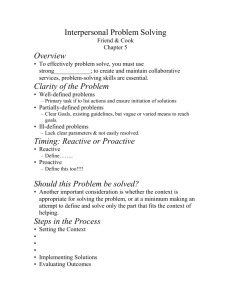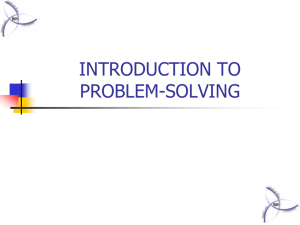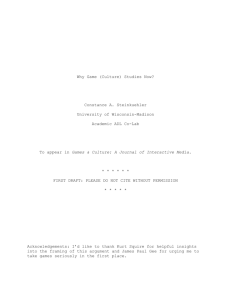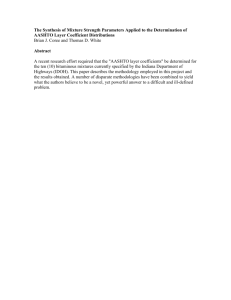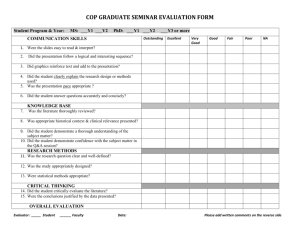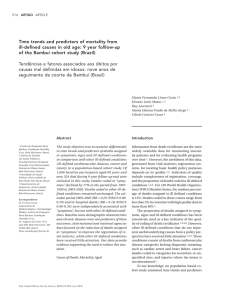Solving Problems by Search — Chapter 3 in Russell / Norvig Book
advertisement
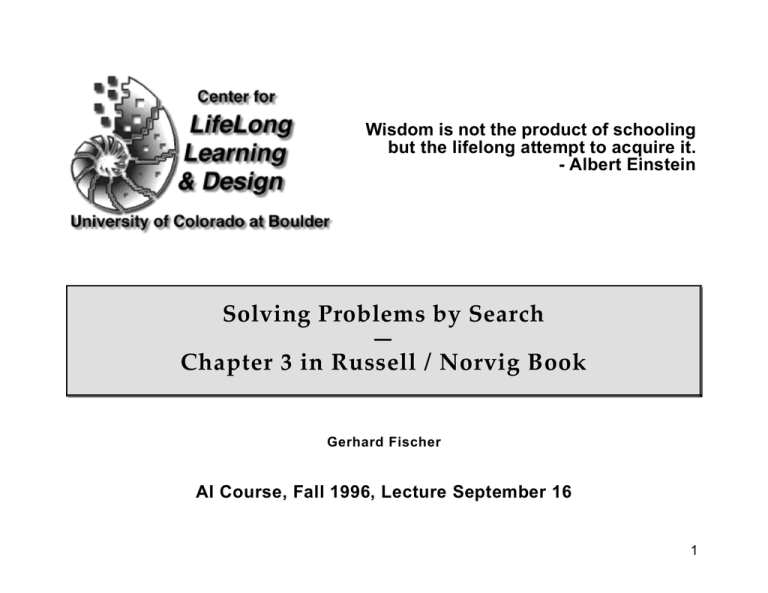
Wisdom is not the product of schooling but the lifelong attempt to acquire it. - Albert Einstein Solving Problems by Search — Chapter 3 in Russell / Norvig Book Gerhard Fischer AI Course, Fall 1996, Lecture September 16 1 Overview • problem solving agents: goals, goal formulation, problem formulation • formulating problems: knowledge and problem types, well- and ill-defined problems • example problems: toy problems and real world problems, semantically poor and rich problems • searching for solutions: generating action sequences, data structures for search tress • search strategies: breath first, depth first, bi-directional search • avoiding repeated states: record the states which have been visited • constraint satisfaction search: states are defined by variables, goal test specifies a set of constraints 2 Well-Defined versus Ill-Defined Problems • Well-Defined Problems: - the essential conditions of the problem are stated - their solutions are the same for all problem solvers - examples: school problems, mutilated checker board, implementing given algorithms • Ill-Defined (or Wicked) Problems: - problem solver takes an active role what the problem is - fill gaps in the problem definition - jump into the problem - use information gained while trying to solve the problem - examples: architects, engineers, lawyers, legislators, software, designers, writers, teachers, .... 3 Semantically Rich Domains versus Semantically Poor Domains • “poor” - knowledge in cryptarithmetic problems: numbers, how to add and subtract, facts about parity - puzzles (missionaries and cannibals) • “rich” - driving a taxi in a big city - medicine - law - using Unix, Word, Excel, .....(high functionality applications) • questions: what is - chess - programming 4 Problem Solving and Search — Cryptarithmetic Problems DONALD + GERALD ------------ROBERT D=5 CROSS + ROADS ------------DANGER • sophisticated strategy (= more knowledge) ----> less search • brute force search: 10! = 3,628,800 possibilities • with D = 5 ----> 9! = 362,880 5 Number Scrabble • two person game • nine cards: 1, 2, 3, 4, 5, 6, 7, 8, 9 • cards are placed face up • players draw alternately, one at a time, selecting any of the remaining cards • goal: to have drawn cards so three of them add up to 15 (before the opponent can do so) 6 Tic-Tac Toe 7 Search Strategies completeness: is the strategy guaranteed to find a solution when there is one? time complexity: how long does it take to find a solution? space complexity: how much memory does it need to perform the search? optimality: does the strategy find the highest-quality solution when there are several different solutions? uninformed search: no information about the number of steps or the path cost from the current state to the goal — all they can do: distinguish a goal state from a non-goal state informed search (or heuristic search): use information, heuristics, guesses about the search space (chapter 4 in Russell / Norvig) 8 Example Problem — Going from the Engineering Center to the Flagstaff House • well-defined or ill-defined? • breath-first search • depth first search 9
